Neuropathy
05
July
2021
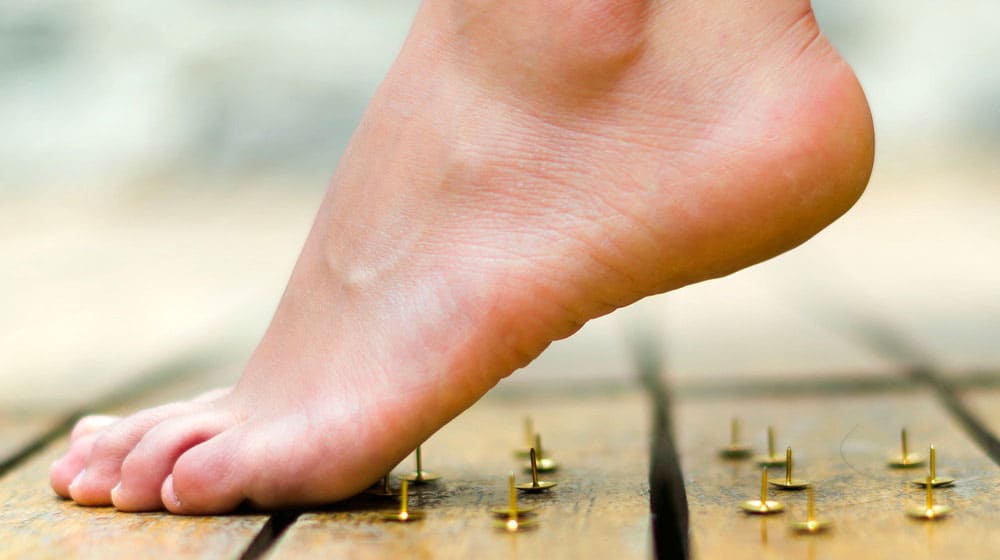
Neuropathy is a medical disorder that occurs when the nerve system is damaged. Numbness, tingling, muscle weakness, and discomfort in the affected location are common symptoms of the nerve dysfunction.
When you have nerve damage, the nerves either send false signals to the brain or no signals at all. Therefore, you might injure yourself and not realize it because you don’t feel any pain, or feel sudden excruciating pain while sitting on your couch.
What triggers neuropathy?
Many factors can trigger neuropathy, including:
Cancer and cancer treatments such as chemotherapy
Diabetes
Alcoholism
Vitamin imbalances
Strokes
Autoimmune conditions
Which nerves can be affected in neuropathy?
Neuropathic pain can affect:
Sensory nerves: nerves that carry messages from your five senses
Motor nerves: nerves that control muscle movement
Autonomic nerves: nerves responsible for breathing, digestion, heart rate, blood pressure and sweating
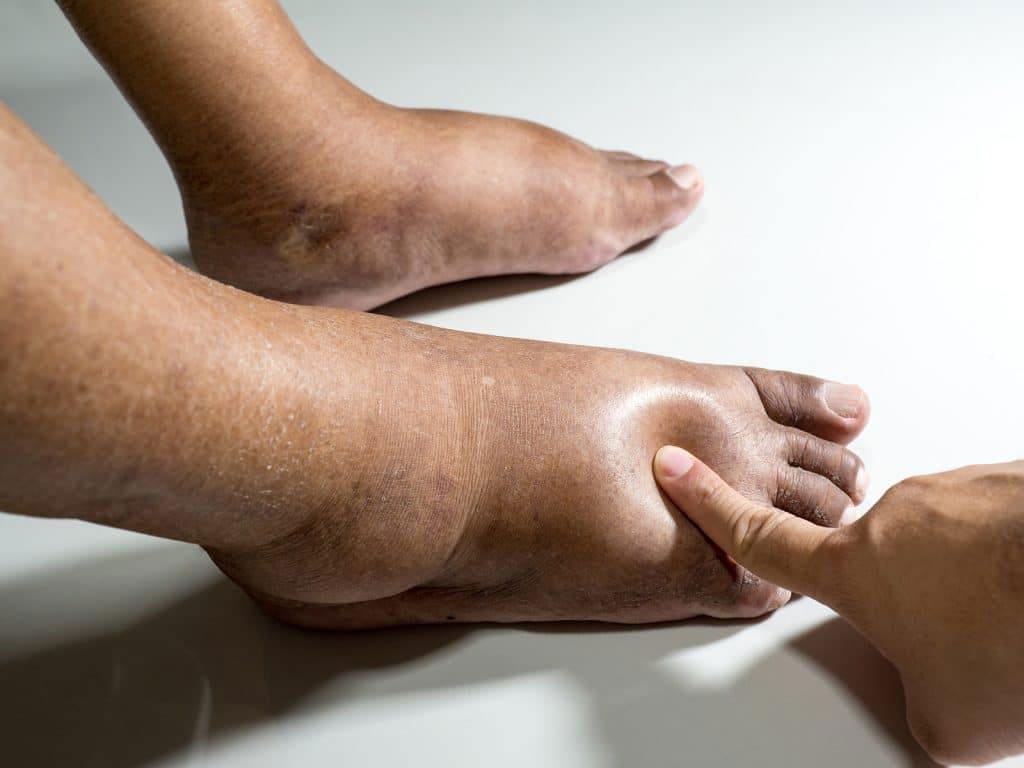
What are the different types of neuropathy?
Different types of neuropathy affect different nerves and different parts of the body.
Peripheral neuropathy: Peripheral neuropathy affects the extremities of the body: hands, arms, legs, and feet.
Autonomic neuropathy: Autonomic neuropathy affects the nerves that control breathing and digestion. This type of neuropathy can affect the heart, the blood pressure, and the digestive system.
Compression mononeuropathy: Compression mononeuropathy comes from the damage or compression of a single nerve that restricts the blood flow to the nerves and affects how they function.
Focal neuropathy: Focal neuropathy affects a single nerve in the head, the torso, the hands or legs. It also causes double vision and sudden weakness of the body.
Trigeminal neuralgia: Trigeminal neuralgia causes intense pain in the face.
Diabetic neuropathy: Diabetic neuropathy causes the decrease in oxygen and nutrients.
Proximal neuropathy: Proximal neuropathy usually touches one side of the body, and it affects the hip, thigh or buttock.
Phantom limb syndrome: Phantom limb syndrome mostly affects people who have undergone an amputation. It causes pain, burning or shooting sensations in a missing limb.
Thoracic radiculopathy: Thoracic radiculopathy affects the chest or abdominal wall.
Do you have neuropathy?
In order to know if you have neuropathy, your doctor will conduct a physical exam testing your reflexes and muscle strength and will ask you some questions about your symptoms to help them recognize neuropathic pain symptoms.
Blood and urine tests are to check for diabetes or metabolic deficiencies, while EMG and nerve-conduction testing are ordered to assess nerve and muscle function and determine which part of the body is damaged.
How common is neuropathy?
Neuropathy is very common and affects all ages. However, older people are at a higher risk of having neuropathy.
People that suffer from diabetes, metabolic syndrome, high cholesterol, obesity or people who work in particular professions, such as those that involve repeated actions, are more likely to develop neuropathy.
How can neuropathic pain affect your daily life?
Actions you don’t think twice about doing normally become impossible for a person suffering from neuropathy.
The most common symptoms are:
Loss of sensation in the fingertips
Standing and walking, which might become painful
Loss of balance
Numbness of the whole body
Difficulty sensing temperature
Pain in the affected area
Tingling sensation in the affected area
Itchiness in the affected area
Therefore, people experiencing neuropathic pain are unable to accomplish day-to-day activities such as tying their shoe laces, buttoning their shirt, typing on their laptops or driving their car.
Does neuropathic pain affect your sleep schedule?
While neuropathy might be bearable during the day because of distractions such as going out, seeing friends or working, the pain worsens as the night comes, particularly for patients who feel the discomfort in their feet and legs.
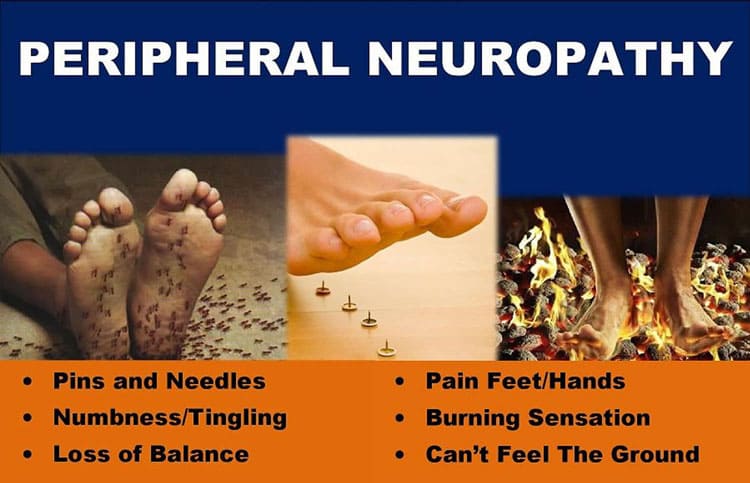
How to improve sleep quality?
Drinking tea before bedtime is calming and will relax you before sleeping. Choose a caffeine-free tea and make sure to let your drink cool down to room temperature to avoid mishaps.
Avoid smoking near bedtime.
Reducing your physical activities during the day might help you sleep better at night. Try using a wheelchair for a comfortable and adaptable transit.
Altering sleeping positions may help decompress the nerve that controls feelings in the lower limbs and feet. Sleeping with a recliner, with a pillow underneath your legs or on the side, may help with your sleeping schedule.
Avoid using electronics a few hours before your bedtime.
Reducing your stress will automatically make your sleepless nights come to an end. Try talking to family members, friends or a therapist, participate in activities you enjoy and relax!
Seek a professional’s help if the problem persists.
Mood swings, anxiety, changes in eating as well as a deterioration of the health are some symptoms a person dealing with insomnia can encounter. Combined with neuropathic pain, it becomes unbearable.
Therefore, if changing your daytime habits and bedtime routine didn’t help, seek a professional’s help. The doctor might give you relaxation techniques, acupuncture therapy or prescribe temporary over the counter medications to help you manage your insomnia.
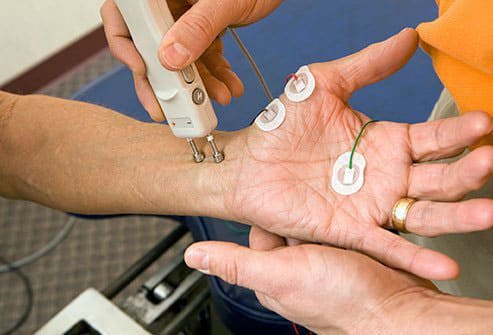
Do all patients feel the same pain?
Neuropathic pain differs from one person to another. Some feel an unexpected pain, others’ pain builds up over time. The symptoms vary and depend on the level of damage to the nerves. In the case of built-up pain, patients feel that their symptoms are gradually becoming worse. They first experience numbness, and they might start losing balance and reflexes.
After a while, the symptoms become less bearable and painful. This is when it’s advised to seek professional help. Intense pain starts kicking in short after, and doing basic activities might become challenging for the patient until they completely lose feeling.
How to ease neuropathic pain?
-
Over the counter painkillers
A variety of drugs, creams, ointments, gels and sprays may help relieve neuropathic pain. Your doctor might start giving you low dosage and gradually increase it to minimize the side effects. Your doctor may also prescribe antidepressants to help control the pain.
-
Complementary or alternative treatments
Many patients need more than just medication to completely heal from the sensation of pain caused by neuropathy. Below are listed some treatments that have relieved some of the pain that patients might be dealing with.
-
Physical therapy
Physical therapists have multiple techniques such as stretching, pain relief exercises, balance and coordination activities, and nerve glide exercises, just to name a few. These methods help reduce a patient’s pain in a large amount.
Nerve glide exercises, for example, have proven to be very effective. The exercise forces the nerves to behave normally and helps the nervous system.
A professional physical therapist will guide you and give you appropriate exercises based on your symptoms and your body.
-
Relaxation therapy
Mental health affects your pain levels greatly. Therefore, you may lower your pain by following a few exercises at home to ease anxiety and stress. Practicing deep breathing, progressive muscle relaxation exercises, imagery, and more, will relax your body and lower your heightened emotions.
-
Massage therapy
It has been proven that massage therapy, performed by properly trained therapists and following appropriate cautions, can help a patient greatly.
It’s good to keep in mind that massage doesn’t replace medical care, and it is highly suggested that you consult your doctor before getting one.
-
Acupuncture
Acupuncture stimulates the nervous system and stimulates blood flow. This therapy has reduced patient’s symptoms and helped ease their pain.
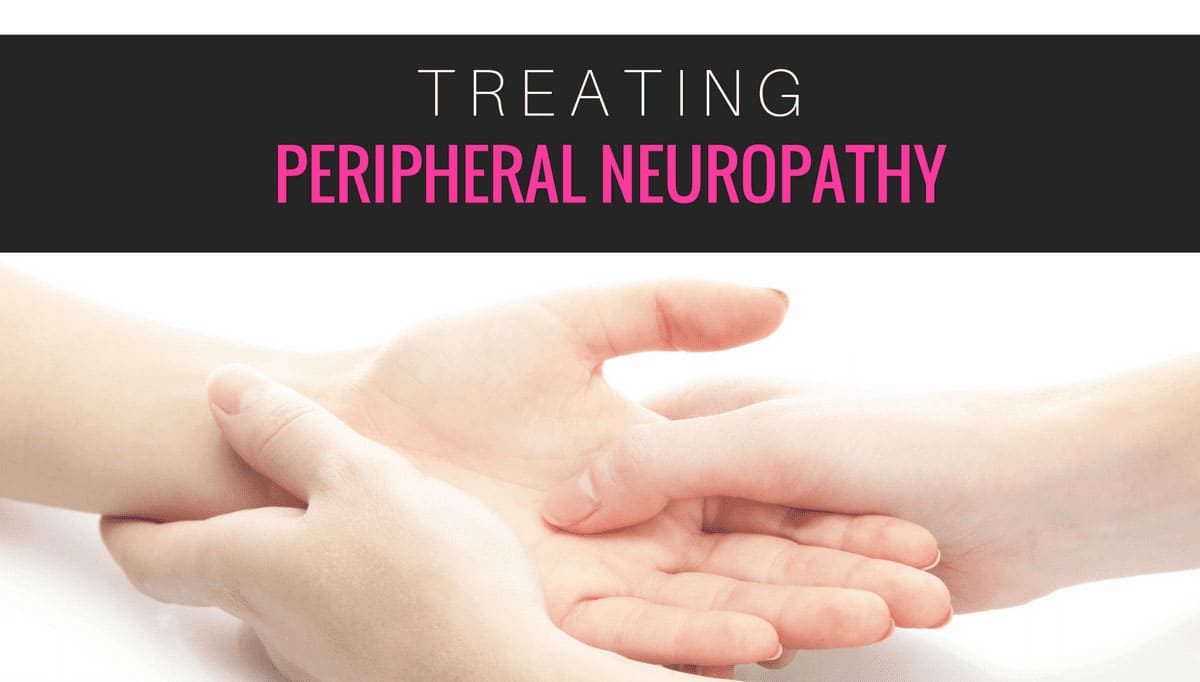
Is there a way to prevent neuropathy?
You can lessen your chances of getting neuropathy by following a healthy diet, losing weight and avoiding alcohol. Alcohol is one of the main causes of neuropathy. The best thing you can do for your health is to eliminate it from your diet.
Manage your stress and practice mindfulness by meditating. Leave space in your schedule for your hobbies and things you enjoy doing. Sleep enough and give yourself a break whenever you feel overwhelmed with emotions. Working out can be a great source of pumping up your endorphins.
If you have diabetes, other chronic health conditions or neuropathy runs in your family, take your precautions and work closely with your healthcare provider to control your condition early on.
Is there a cure for neuropathy?
Not all cases of neuropathy can be cured. Treatments aim to slow the progression of the disease and to relieve pain. If neuropathy diminishes, it will be a long process that requires several months.
Keep in mind that…
It is difficult to completely treat neuropathy. Therefore, listening to your doctor’s advice and taking care of your mental health should be your priority. Combine medical assistance with personal growth, self-acceptance and positivity in order to maximize your chances of healing.
If you or anyone you know is suffering from nerve pain, call us today on (254) 580-8765 to book an appointment with our expert doctors.